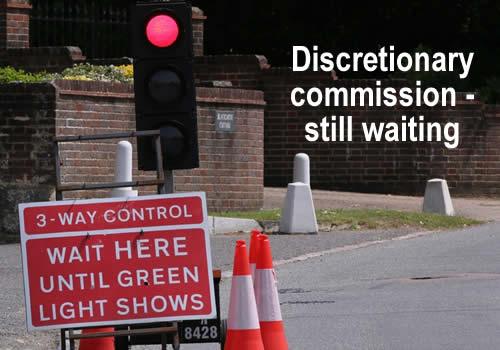
This is an update on car finance commission claims, looking at developments since January 2024.
These claims are, as expected, going slowly with no refunds being paid so far:
- the Financial Conduct Authority (FCA) is reviewing the use of discretionary commission arrangements (DCAs);
- this review will be published by 24 September 2024;
- because of this review, the FCA is allowing lenders longer to respond to complaints. It is also giving customers extra time to take complaints to the Financial Ombudsman (FOS).
There have been some legal developments in the background and customers have started to get responses from the finance lenders. So this article summarises what you need to know at the moment.
Background – the start of these claims in January
In January 2024, FOS published decisions on some car finance commission cases. FOS found that DCAs were unfair. It awarded refunds to customers in the two cases where they were used, and rejected a case where the commission arrangements were fixed, not discretionary.
I published Car finance commission scandal – can you get a refund? That explained more about these complaints and why the commission was unfair. It had links to the key Ombudsman decisions. It also had a template for asking the lender whether your car finance had included a DCA.
MSE then published its Car finance reclaim tool & guide.
If you had car finance that started before the end of January 2021 and you haven’t yet contacted the lender, I suggest you read those two links and do this now!
Legal developments since January
One of the key decisions published in January was against Barclays Partner Finance. Barclays decided in April to challenge this decision by going to court for a Judicial Review. If this legal succeeds, FOS will probably have to review how it handles other car commission cases.
There are other court cases in progress as well. FOS says:
In March, three court cases relating to car finance commission were granted permission to go to the Court of Appeal. The Court of Appeal hearing has not yet taken place. The Court of Appeal’s decision is expected to consider how the law relating to secret and half-disclosed commission might apply to motor finance commission payments.
While FOS doesn’t have to follow exactly what a court would decide, it will want to consider relevant Appeal Court decisions in deciding its general approach.
As a result, the 20,000 car commission cases at FOS are now effectively on hold. James Dipple-Johnstone, the deputy chief ombudsman, has said:
It is disappointing that ongoing legal proceedings around motor finance commission have impacted our ability to issue final decisions in some of these cases.
Lender responses – and what you can do next
The responses seem to fall into six rough groups. For each, I have tried to suggest what you should do next.
This is my opinion – it is possible you may get a better result by doing something else.
I have used DCA here as a convenient abbreviation for discretionary commission arrangement. The lender’s reply to you may not have used this abbreviation. Or those exact words.
“Your finance had a DCA and we are treating this as a complaint”
That is good news – based on the Ombudsman’s decision in January, you do have a valid claim. And the lender is treating this as a complaint, which is helpful.
But this is not yet a “decision” on your complaint. The lender normally points out the FCA has allowed them up until 25 September to reply to your complaint.
You can’t speed this up. You can’t send your complaint to the Financial Ombudsman until after 25 September unless the lender has sent you a decision rejecting your complaint before then.
“Your finance had a DCA, would you like to complain?”
This isn’t common – most lenders treat the query as a complaint once it is established there was a DCA.
In this case, you should reply saying that you want to make a complaint because you feel you have not been treated fairly. Say that as the commission structure was not disclosed to you at the time, you were unaware that it resulted in a higher interest rate and could not have tried to negotiate it down. Ask for a refund of the additional interest you paid because of it, in line with the January Financial Ombudsman decisions.
“Your finance did not involve DCA”
Some lenders have replied saying they never used this sort of discretionary commission. In other cases, lenders have looked at your car finance and said it did not involve a DCA.
Here there is nothing you can do. It seems very unlikely that a lender would deliberately lie to a customer about a matter that the FCA was taking an active interest in.
Some people have asked if they could find out more by sending the lender a Subject Access Request asking for a copy of all the personal information they have about you. This won’t help because most lenders say the commission paid by the lender to the broker was not “your personal information” so you won’t be told about it.
“You should have asked about commission at the time”
This isn’t common. In the replies I have seen that said this, the term “commission” was used and not any reference to the broker/dealer having any form of discretion.
This is an actively unhelpful reply.
I suggest you reply saying their responses has not answered your query about the commission arrangements and whether the broker or dealer has any discretion to set your interest rate at a higher level to increase the commission they received. Say that if any form of discretionary commission was involved, you are making a complaint that this was unfair.
“We are still considering if your finance involved DCA”
Some lenders say they don’t yet know what the commission arrangements on your finance were. And they normally point out the FCA has allowed them up until 25 September to reply.
You may suspect that no one has actually looked. Or wonder if there was a DCA but they don’t want to admit this . You may feel cross because the FCA is allowing firms longer to reply to complaints, but all you have done is made a simple query.
This is irritating but you can’t speed this up. You can’t send your complaint to the Financial Ombudsman until after 25 September unless the lender has sent you a decision rejecting your complaint before then.
“We don’t have records of your finance”
This could be because you haven’t given them enough information to trace your agreement. Or because they deleted or anonymised the details of your agreement because of the way they handle old data – the reply to you may have mentioned GDPR.
Where information is missing, a lender should still try to conduct a fair investigation into complaints. If you have been asked to provide any information about the agreement, this could help. The lender could talk to the broker or dealer involved to see if they have retained any records.
What you can do now:
- try to get bank statements showing what you paid. You can get statements from an account you have closed in the last few years, so don’t assume this can’t be done. Don’t delay doing this – it it turns out they are needed in 6-12 months time, that may be herder than getting them now;
- check any paperwork or old emails for details of the agreement. Old insurance documents may provide a registration number.
- ask the dealer or broker yourself about the commission arrangements. Just sent them a similar query to the one you sent the lender.
If your response isn’t like one of those
If your reply doesn’t seem to fit within any of the above categories, please leave a comment at the bottom of this article, copying in what your reply says.
Some other questions
Would it be quicker to use a claims firm?
That’s unlikely! Civil court cases are rarely fast.
Also the fees involved may be very high. One person using a claims company had her PPI complaint settled out of court by a lender who offered £1,705. From that, deductions were made for fixed recoverable costs, success fee (plus VAT), issue fee, hearing fee, ATE policy cost and insurance premium tax. She was left with just £441, so she lost nearly 75% of the refund in charges.
My lender has gone bust
It isn’t clear at the moment if you could have a claim against the dealer or broker instead. But ask them what the commission arrangements were.
Why is the FCA allowing these delays?
The FCA says:
If we find there has been widespread misconduct and that consumers have lost out, we will identify how best to make sure people who are owed compensation receive an appropriate settlement in an orderly, consistent and efficient way and, if necessary, resolve any contested legal issues of general importance.
The “if” in that statement is VERY likely to happen. The FCA banned these commission arrangements in 2021 because they were unfair to customers. In February, Lloyds – which owns Black Horse, the UK’s largest car finance lender – made a provision in its accounts for £450 million for paying refunds.
So what will the FCA say? It has a wide variety of powers. It could:
- tell lenders to settle claims on a similar basis to the Ombudsman decisions;
- set out an industry-wide compensation scheme on some other basis;
- apply to the Financial Markets Test Case Scheme, to decide important contested legal issues without individual cases having to go through the court.
Before January, lenders were rejecting all these complaints and 20,000 cases were already at the Ombudsman. The FCA announced its review and paused complaint handling to prevent complaints from being rejected or sent to the Ombudsman because lenders were unable to cope with issuing responses within 8 weeks.
It isn’t in anyone’s interest for the Ombudsman to end up with hundreds of thousands of cases to be resolved. So although the delays at the moment may sound excessive, it is hoped that the end result will be speedier.
More articles:

Car finance affordability complaints

Can you get an overdraft refund?

Barclaycard cuts minimum payments